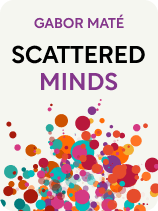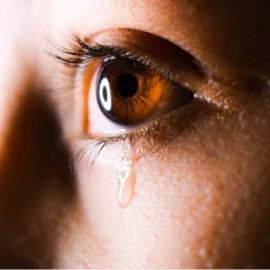

This article is an excerpt from the Shortform book guide to "Scattered Minds" by Gabor Maté. Shortform has the world's best summaries and analyses of books you should be reading.
Like this article? Sign up for a free trial here.
What is Dr. Gabor Maté’s ADHD healing technique? Why does he believe medication isn’t the right treatment for ADHD?
In Scattered Minds, Gabor Maté says that doctors tend to treat ADHD like it’s a purely medical problem by prescribing medication—and nothing else—for it. He believes that this approach is fundamentally unsuitable and calls for a more holistic plan for healing ADHD.
Let’s dig more deeply into his theory of healing.
Medication Can Help, But It Won’t Heal
Dr. Gabor Maté’s ADHD medication argument claims that while it can reduce or help you cope with your symptoms, it won’t heal your ADHD. That’s because the source of your ADHD symptoms isn’t simply a chemical imbalance. ADHD does have a chemical component—your brain doesn’t transmit dopamine (a neurotransmitter associated with the regulation of attention, impulse, and stillness) in the typical way.
But according to Maté, the chemical component of ADHD has deeper roots—you can’t transmit dopamine appropriately because you lack the appropriate neurostructure and positive life experiences that are required for typical dopamine transmission. Since ADHD medication can’t address those root causes, he says, it’s not possible to heal your ADHD with medication alone.
He also notes that ADHD medication isn’t appropriate for everyone—sometimes it doesn’t have the desired effect, or the side effects are insurmountably harmful. It’s important that your autonomy be respected when it comes to medication—if you feel it isn’t helping, you shouldn’t let anyone push you or your child to take it.
| Dopamine, ADHD Medication, and Healing Experts are still divided about the role that dopamine plays in ADHD. Some research has indicated that people with ADHD have significantly lower levels of dopamine because they have a higher concentration of dopamine transporters—proteins that can negate the function of dopamine in your brain—resulting from a genetic mutation. However, other researchers suggest that dopamine doesn’t contribute as much to ADHD symptoms as other brain differences do. Nevertheless, the most common ADHD medications—stimulants like Ritalin and Adderall—work by increasing the amount of dopamine in your brain. These treatments don’t work for everybody, but many people with ADHD report that taking stimulants radically changed their lives for the better. There are also non-stimulant medications available for ADHD that target other neurotransmitters and parts of the brain. If your ADHD medication isn’t working for you, talk to your doctor. They may change your dosage, try a different medication, or prescribe non-drug treatment for your ADHD. Experts don’t claim that ADHD medications can heal your ADHD because ADHD is widely considered incurable—no treatment, whether it’s medication, behavioral therapy, or something else, will eradicate your ADHD. But ADHD medications can help you cope with your symptoms more effectively and, ultimately, live a happier life. |
Your Brain Is Plastic, So Change Can Heal It
Maté theorizes that it’s best to treat ADHD by using brain plasticity to your advantage. He explains that while your brain is most plastic during childhood, it continues to be affected by environmental stimuli throughout the rest of your life. This means that it’s never too late to learn the psychological skills you missed out on developing as a child—and when you do, it’ll have a positive impact on your physical brain, too. Over time, you can gradually overcome the negative effects of early childhood stress on your brain.
(Shortform note: Experts say that you can proactively improve your brain’s plasticity by putting yourself in novel situations—as you adapt to the change, your brain makes new neuronal connections. Example activities include learning new skills (like speaking a language or playing a musical instrument), having new experiences (by traveling to a foreign country, for example), and playing games that involve creativity or surprise. Getting enough sleep and exercise also promotes neuroplasticity.)
Since Maté believes that the fundamental cause of ADHD is the rupture of the parent-child bond, that’s where he thinks you should focus most of your healing efforts. You can’t go back in time and provide yourself with a consistently positive childhood, but you can re-parent yourself as an adult by taking responsibility for your emotional wellness, learning to fulfill your own needs, and accessing the resources you need to improve. Likewise, if you’re the parent of a child with ADHD, you can help them flourish by making changes that strengthen the bond you share.
(Shortform note: Re-parenting yourself is a commonly prescribed treatment for survivors of childhood trauma. According to the psychologist who invented the concept, self re-parenting works because it helps you disidentify from your parents’ negative concept of you and come into your own, healthier self-concept. For example, if your parents made you feel stupid as a child, you probably feel stupid as an adult—and re-parenting yourself would involve learning to see yourself in a more positive light. Self re-parenting is usually done in conjunction with a therapist, who can help you identify the negative patterns you adopted from your parents and learn how to change them.)

———End of Preview———
Like what you just read? Read the rest of the world's best book summary and analysis of Gabor Maté's "Scattered Minds" at Shortform.
Here's what you'll find in our full Scattered Minds summary:
- How ADHD is caused by early childhood stress that hinders development
- Why medication isn't the best way to treat ADHD
- How society can prevent ADHD in future generations






